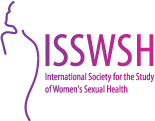Are you eager to advance your research in sexual medicine and women’s sexual health but need guidance on how to secure funding? Join us for "Grant Writing 101: Basics for ISSWSH Grant Submission," a focused webinar designed to help you successfully navigate the grant application process for the International Society for the Study of Women's Sexual Health (ISSWSH) and make you a competitive applicant.

PhDModerator/Panelist
University of Rochester
Dr. Megan Falsetta, PhD is an Assistant Professor at the University of Rochester with a joint appointment in OB/GYN and Pharmacology and Physiology. She completed her undergraduate degree in Biology at Alfred University, then moved onto graduate school at the University of Iowa. She completed her PhD in Microbiology and Immunology in 2009, focusing on how Neisseria gonorrhoeae forms biofilms to evade the immune response in women, which may contribute to asymptomatic infection. She then studied oral biofilms and early childhood caries as a post-doc at the University of Rochester. She returned to studying women’s health during a second post-doc, which ultimately led to her appointment as OB/GYN faculty. Her ongoing research aims to discover and understand mechanisms of endometriosis and vulvar disease, specifically vulvodynia and lichens sclerosis. Very little is known of the causes and mechanisms of genitopelvic disease. Dr. Falsetta contends that understanding these mechanisms is the key to improving patient care through the development of mechanism-based therapeutics, new diagnostics, and greater visibility of genitopelvic disease.

PhD, MPHPanelist
U of TN Health Science Center
Janeane N. Anderson is an Assistant Professor in the Department of Community and Population Health in the College of Nursing at the University of Tennessee Health Science Center (UTHSC) in Memphis, TN. Dr. Anderson completed postdoctoral research fellowships at Emory University and UTHSC. She earned a Ph.D. in Communication and a Master of Public Health degree from the University of Southern California.
Dr. Anderson’s research targets the relationship between patient-clinician communication practices and clinical and quality of life outcomes among Black adults with chronic health conditions, specifically breast cancer, HIV/AIDS, and vulvovaginal and pelvic pain. Extramural funding from the National Cancer Institute has supported studies that explore patient-clinician communication, treatment adherence, and sexual health challenges among Black and sexual minority women with early-stage breast cancer. She has received also received funding from the Washington DC Center for AIDS Research to develop a shared decision-making tool to facilitate pre-exposure prophylaxis (PrEP) initiation for Black sexual minority men and from the Tennessee Department of Health to train clinicians in optimal communication practices for PrEP uptake. New funding from Gilead Sciences, Inc. will support investigation of multilevel barriers to healthcare access and use of services for Black women with de novo metastatic breast cancer in the U.S. Mid-South region.
Dr. Anderson’s professional activities also include developing faculty resources and university-level programming to address diversity, equity, and inclusion goals and objectives.

MSN, FNP-C, RNC-OB, AAHIVS Panelist
Johns Hopkins University
Brenice Duroseau is a Haitian-American board-certified Family Nurse Practitioner (FNP) with well over a decade healthcare experience. Throughout her career she has specialized in infectious diseases (HIV/AIDS, STIs), women’s health (obstetrics), and community health. Currently she is a PhD candidate at Johns Hopkins University School of Nursing focusing on innovative and culturally responsive interventions to enrich the sexual reproductive health of Black women.

PhDPanelist
University of Nebraska-Lincoln
Dr. Lorenz is an Associate Professor in the Department of Psychology and Center for Brain, Biology and Behavior at the University of Nebraska-Lincoln. Thier research examines the interaction between mental, physical and sexual health. The Women's Integrative Sexual Health (WISH) lab investigates the ways that sexual behavior impact immune and endocrine function, as well as ways to help women and gender minority people with mental and/or physical health conditions have happy, healthy sexual lives. We also focus on helping survivors of sexual trauma and discrimination through basic science and clinical research. Our research draws from evolutionary and feminist science perspectives, and uses methods from multiple fields, including measures of hormones and immune markers, psychophysiological measures of sexual and autonomic arousal, clinical trials, surveys and interviews, and more.

PhDPanelist
University of Kentucky
Dr. Shemeka Thorpe (she/her) is an award-winning sexuality educator and researcher. Her research focuses on the sexual well-being and reproductive health of Black women using sex-positive frameworks and Black feminisms. Dr. Thorpe’s primary research focus is on Black women’s sexual well-being and family planning processes among Black queer women. Dr. Thorpe is an assistant professor of health promotion and the assistant director of the UNITE Research Priority Area. She is also a faculty affiliate of African American and Africana Studies and the Commonwealth Institute for Black Studies. She has published over 50 peer-reviewed articles in journals in sexology, psychology, and public health. In 2023, Buzzfeed listed her as one of the top 20 Black sexologists you should follow. She has been featured on numerous podcasts, online magazines, and blogs such as Cosmo, Elite Daily, The New York Times, and Essence. Dr. Thorpe aims to make research relevant to Black communities by translating sex science in meaningful and tangible ways through social media.
Time: 8:00 PM - 9:00 PM EDT
Q&A Session: 9:00 PM - 9:30 PM EDT
In this essential webinar, you will:
- Learn to Formulate and Test a Research Question: Gain practical skills in developing a clear, focused, and researchable question that serves as the foundation for a compelling grant proposal.
- Understand the Fundamentals of Grant Submission: Explore the core components of a successful grant proposal, including creating a persuasive narrative, defining objectives, and constructing a detailed budget. Learn about the importance of positionality in grant writing and how your perspective influences your research and proposal.
- Prepare for the ISSWSH Grant Cycle: Receive specific guidance on applying for ISSWSH grants, which are awarded to trainees in women’s sexual health partnered with a current ISSWSH member. Learn how to find a mentor within the ISSWSH community to support your application and improve your chances of success. Understand how to align your proposal with ISSWSH’s criteria.
- Enhance Your Grant Writing Skills: Acquire valuable techniques that are applicable to other funding opportunities, such as those from the National Institutes of Health (NIH) and other institutions. Discover practical tips and strategies to improve your proposal's clarity and impact.
Featured Speakers:
- Megan L. Falsetta, PhD - Expert in molecular mechanisms of vulvar and pelvic disease.
- Shemeka Thorpe, PhD - Researches the sexual well-being and reproductive health of Black women using Black feminisms and sex-positive frameworks.
- Tierney Lorenz, PhD - Examines the interaction between mental, physical, and sexual health through the Women's Integrative Sexual Health (WISH) lab.
- Janeane N. Anderson, PhD, MPH - Explores on the relationship between patient-clinician communication practices and clinical and quality-of-life outcomes among racialized, marginalized patient populations.
- Brenice Duroseau, MSN, FNP-C, RNC-OB – ISSWSH and NIH grant recipient, and doctoral candidate at Johns Hopkins School of Nursing focused on the political, social and structural determinants of sexual and reproductive health among Black women.

